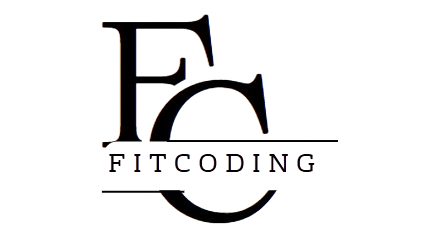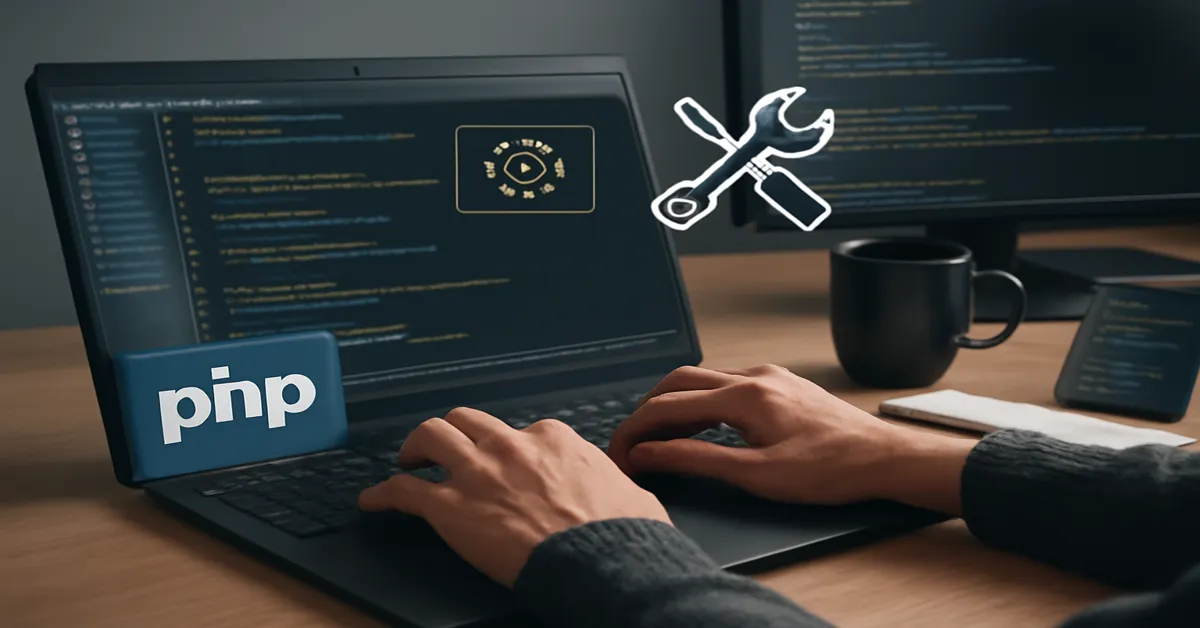PHP, one of the most widely-used programming languages in web development, has undergone significant transformations over the years. As businesses and developers alike continue to rely on it for creating dynamic websites and applications, understanding how to improve PHP coding efficiency has never been more important. Efficiency in PHP coding can lead to faster development cycles, more maintainable code, and, most importantly, improved performance in applications. Whether you’re a beginner or an experienced developer, improving your PHP coding efficiency can make a substantial difference in the quality of your projects.
In this article, we will dive deep into the techniques, tools, and best practices that can drastically improve the efficiency of PHP coding. From optimizing performance to adhering to coding standards and leveraging modern PHP features, we’ll explore how developers can streamline their workflows and produce clean, high-performance code.
1. Why PHP Coding Efficiency Matters
Before delving into specific techniques, it’s important to understand why coding efficiency in PHP is crucial. PHP is the backbone of many content management systems (CMS), such as WordPress, Joomla, and Drupal, and is also widely used for custom web development. With PHP’s growing role in building dynamic, data-driven applications, coding efficiency directly impacts both the performance of the website and the developer’s workflow.
Efficient PHP code helps in various ways:
- Faster Execution: More optimized PHP code runs faster, reducing load times and improving the user experience.
- Reduced Server Load: Efficient code consumes fewer server resources, which is particularly important for high-traffic websites.
- Easier Maintenance: Clean, well-organized code is easier to read and maintain. This is crucial for long-term projects that require ongoing updates and bug fixes.
- Scalability: As applications grow, inefficient code can become a bottleneck. Efficient PHP code ensures scalability and allows your website to handle increased traffic or more complex operations without significant performance degradation.
Now that we understand the importance of PHP coding efficiency, let’s explore how developers can improve it in various aspects of their workflow.
2. Writing Clean and Maintainable Code
Efficient coding begins with writing clean and maintainable code. This is the foundation of any successful PHP project. Clean code not only improves efficiency during the development process but also makes it easier to troubleshoot and scale in the future. Here are some key strategies to ensure clean code in PHP:
Adhere to Coding Standards
One of the most effective ways to write clean PHP code is to follow established coding standards. The PHP-FIG (PHP Framework Interoperability Group) has created standards like PSR-1 (Basic Coding Standard), PSR-2 (Coding Style Guide), and PSR-4 (Autoloading Standard). Adhering to these standards ensures that your code is readable and consistent, especially when working in teams.
Some core principles to follow:
- Use meaningful variable names that convey the purpose of the data they store.
- Consistently indent your code to improve readability.
- Keep functions and methods small, focusing on a single task.
- Use CamelCase for naming functions, variables, and classes.
Refactor Code Regularly
Refactoring involves revising existing code to improve its structure without changing its functionality. Regular refactoring helps you eliminate code smells (poor design or inefficient coding patterns) and reduces redundancy. If your functions are doing too much or your classes have too many responsibilities, it might be time to refactor.
Good refactoring practices include:
- Breaking down long functions into smaller, more manageable ones.
- Eliminating repetitive code through reusability, like creating helper functions or using design patterns.
- Organizing code into logical components, following the Single Responsibility Principle (SRP).
Avoid Hardcoding Values
Hardcoding values (e.g., magic numbers or strings) in your PHP code leads to issues with maintainability. If a hardcoded value needs to change, you will have to modify it in multiple places across your application, increasing the chances of errors.
A better approach is to store configuration values or constants in a configuration file or use environment variables (through the .env file) so they can be updated centrally. This makes your code more flexible and easier to manage.
3. PHP Performance Optimization Techniques
Performance is one of the most critical aspects of any PHP-based application. Efficient code that runs faster provides a better user experience and can help your site handle a larger volume of traffic. Here are some essential techniques to optimize PHP performance:
Utilize Caching
Caching can dramatically improve performance by storing the results of expensive operations or database queries and reusing them instead of recalculating. PHP supports various caching techniques:
- Opcode Caching: Tools like OPcache store precompiled bytecode in memory, allowing PHP to skip the parsing and compilation steps for repeated requests. Enabling OPcache on your PHP setup can provide significant performance gains.
- Data Caching: Use Redis or Memcached to cache data in memory. This is especially useful for caching database query results, API responses, or user sessions.
- Page Caching: For static pages or content that doesn’t change often, consider using page caching solutions that store entire HTML pages in the cache.
Optimize Database Queries
Inefficient database queries are a major bottleneck in many PHP applications. Here are ways to optimize database interaction:
- Use Indexes: Ensure that your database tables are indexed appropriately to speed up SELECT queries. A well-indexed table can drastically reduce query execution time.
- Limit Data Fetching: Retrieve only the data you need. Avoid fetching unnecessary columns or rows, especially in loops.
- Avoid N+1 Query Problems: The N+1 query problem occurs when your application executes one query to fetch a list of items and then executes additional queries for each item. Use JOINs or Eager Loading to fetch related data in a single query.
Minimize External Requests
When your PHP application makes external requests (e.g., API calls, web scraping, etc.), it can slow down response times. Consider the following to minimize these impacts:
- Use Asynchronous Requests: For non-blocking operations, such as making external API requests, consider using asynchronous requests so that your application doesn’t have to wait for the response before continuing with other operations.
- Batch Requests: Instead of making multiple individual API calls, batch them together to reduce the overhead.
4. Leverage Modern PHP Features
PHP has evolved significantly over the years, and its newer features offer opportunities for improving coding efficiency and application performance. Here’s a breakdown of some important modern PHP features to utilize:
Type Declarations
PHP 7 introduced scalar type declarations and return type declarations, which help improve code reliability and readability by making it explicit what type of data a function expects and returns. This can prevent type-related errors and make your code easier to maintain.
For example:
phpCopyfunction add(int $a, int $b): int {
return $a + $b;
}
By using type declarations, PHP performs automatic type checking, which helps catch errors early and improves overall code efficiency.
Namespaces and Autoloading
Namespaces help organize classes, functions, and constants into logical groups, making your code cleaner and reducing the risk of name collisions. Along with autoloading (introduced in PHP 5.3), namespaces allow you to automatically load PHP classes only when they’re needed, reducing the overhead of including files manually.
Example:
phpCopynamespace App\Models;
class User {
// User model code
}
Autoloading can be managed using the PSR-4 standard, which is automatically handled by modern frameworks like Laravel and Symfony.
Anonymous Classes
Introduced in PHP 7, anonymous classes (also called “closures”) are classes that don’t have a name and can be instantiated directly without needing to define a separate class file. These are useful when you need simple, one-off classes for specific purposes.
phpCopy$logger = new class {
public function log($message) {
echo $message;
}
};
Generators and Iterators
Generators, introduced in PHP 5.5, allow you to iterate over large datasets without needing to load the entire dataset into memory. Using yield in place of returning a full array can improve memory usage and performance.
Example:
phpCopyfunction generateNumbers() {
for ($i = 0; $i < 1000; $i++) {
yield $i;
}
}
Generators are highly efficient for large datasets and can significantly reduce memory consumption.
5. PHP Development Tools and Frameworks for Efficiency
In addition to writing clean code and optimizing performance, using the right development tools and frameworks can significantly boost PHP coding efficiency. Here are a few popular tools that can make your development process faster and more productive:
Integrated Development Environments (IDEs)
IDEs like PHPStorm, Visual Studio Code, and NetBeans offer features such as code completion, debugging, and syntax highlighting, which can speed up development. These tools also integrate with version control systems, making collaboration easier.
Version Control with Git
Using Git for version control allows you to manage changes to your codebase efficiently, collaborate with team members, and track the history of your project. Git’s branching model enables developers to work on features or bug fixes independently, without disrupting the main codebase.
PHP Frameworks
PHP frameworks, such as Laravel, Symfony, and CodeIgniter, provide pre-built modules, routing systems, and security features that can accelerate the development process. Frameworks follow best practices, help maintain code consistency, and reduce the amount of boilerplate code developers need to write.
6. Conclusion: The Path to Efficient PHP Coding
Improving PHP coding efficiency is an ongoing process that involves writing clean, maintainable code, optimizing performance, leveraging modern PHP features, and using the right development tools. By focusing on these key areas, developers can produce high-quality, high-performance applications that are easier to maintain, scale, and improve over time.
Whether you’re building small websites or large-scale enterprise applications, applying these principles of PHP efficiency will ultimately save you time, reduce errors, and improve the overall user experience. Keep learning, refining your approach, and embracing new technologies to ensure that your PHP coding practices remain cutting-edge and efficient in the ever-evolving world of web development.
Read:
Creating a Futuristic Website with PHP: A Step-by-Step Guide for Modern Web Development
Building the Future: How to Create the Best PHP Program for the Next Generation of Developers
30 Interview Questions for PHP Programming: Your Guide to Acing PHP Interviews
The Uses of PHP Programming: A Deep Dive into Its Versatility and Impact on Web Development
FAQs
1. Why is PHP coding efficiency important?
PHP coding efficiency is crucial because it improves performance, reduces server load, enhances scalability, and makes code easier to maintain. Efficient PHP code leads to faster page load times and a better overall user experience, which is essential for high-traffic websites and complex applications.
2. How can I optimize the performance of my PHP application?
To optimize PHP performance, consider techniques like caching (using OPcache, Redis, or Memcached), optimizing database queries, minimizing external requests, and using asynchronous operations. Additionally, employing best practices like limiting data fetching and using indexes in the database can improve performance.
3. What modern PHP features should I use to improve coding efficiency?
To improve coding efficiency, utilize modern PHP features like type declarations, namespaces, autoloading, anonymous classes, and generators. These features make your code cleaner, easier to maintain, and more efficient, particularly for handling large datasets and reducing memory consumption.
4. What are the best tools to improve PHP development efficiency?
The best tools for improving PHP development efficiency include Integrated Development Environments (IDEs) like PHPStorm and Visual Studio Code, version control with Git, and PHP frameworks like Laravel and Symfony. These tools offer features like code completion, debugging, and pre-built modules to speed up development.
5. How do I write clean and maintainable PHP code?
To write clean and maintainable PHP code, adhere to coding standards like PSR-1 and PSR-2, use meaningful variable names, keep functions small and focused on a single task, and avoid hardcoding values. Regularl











